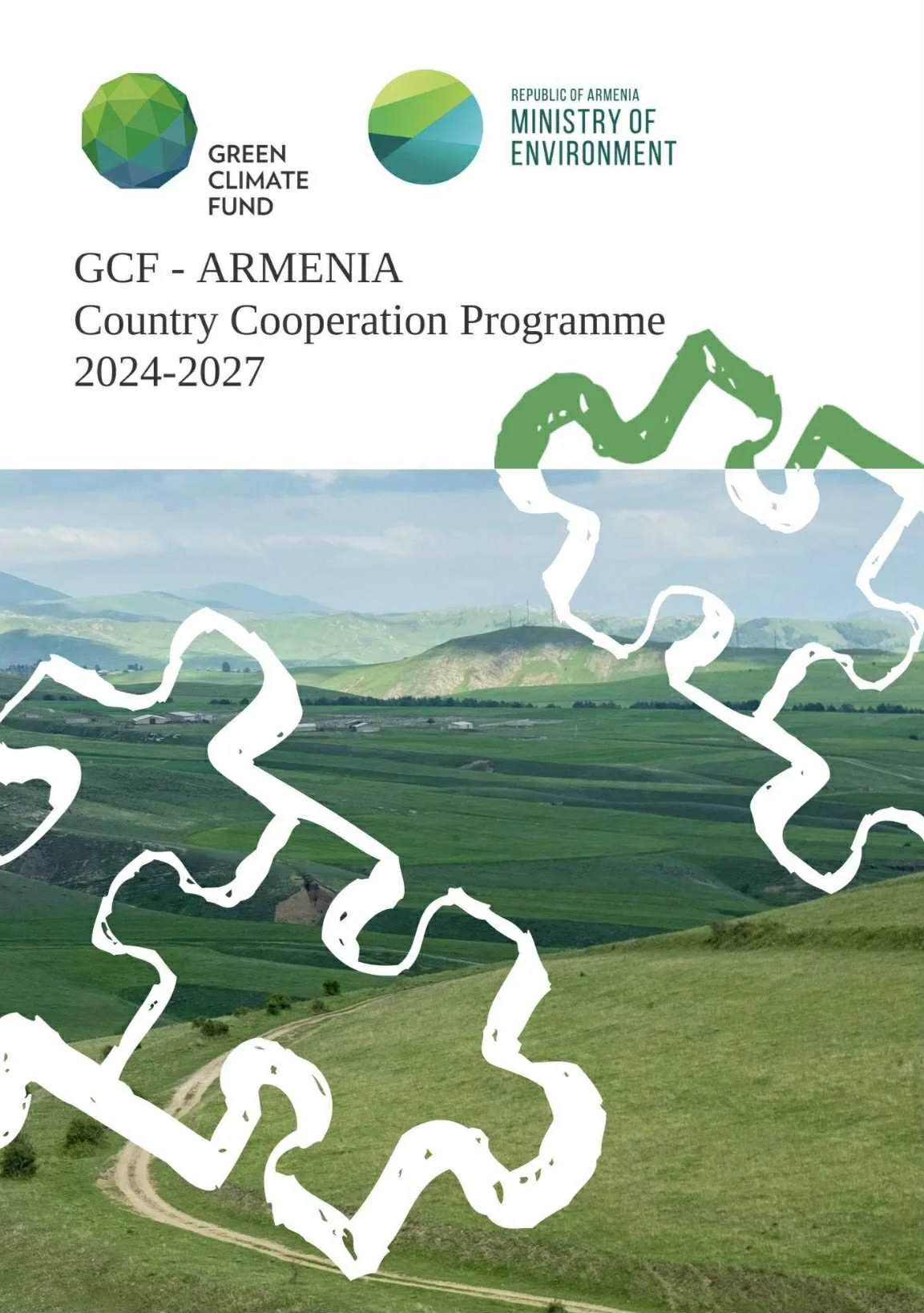GCF-Armenia Country Cooperation Program
Environment Group supported the Ministry of Environment and the Environmental Project Implementation Unit in developing Armenia’s Country Cooperation Program for the Green Climate Fund’s second replenishment round (2024–2027).
The GCF-Armenia Cooperation Framework (Country Program) for the second replenishment phase of the Green Climate Fund (2024-2027) was developed in close cooperation with the Fund’s Regional Officers for Eastern Europe and Central Asia in the context of the Readiness Support Project “Improving the Programmatic and Partnership Framework with the Green Climate Fund, Linking it to the Country’s Long-Term, Low-Carbon Development Strategies”, which is implemented by the “Environmental Program Implementation Office” of the Ministry of Environment of the Republic of Armenia, a state institution with direct access to the GCF. The Ministry of Environment, as the country’s National Authorized Body, coordinated the process to ensure the involvement of relevant national stakeholders. The work included preparation of the green finance implementation strategy and an action plan for 2024-2027, ensuring alignment with national climate priorities and GCF investment criteria. The following recommendations are designed to ensure the program’s success and relevance to both national priorities and the evolving climate finance landscape:
• Strengthen stakeholder engagement: Continuous and dynamic engagement with all stakeholders, including newly accredited organizations, government agencies, the private sector, civil society, and development partners, is essential. Special emphasis should be placed on incorporating feedback from these stakeholders into the program’s iterative review processes. This will enhance program adaptability and ensure broad support and ownership.
• Implement a rigorous review process: While adhering to the recommended review pillars, the program should conduct thorough evaluations to assess progress, adapt to new developments, and incorporate innovative project ideas. This includes an initial review one year after implementation, a mid-term review, and a penultimate year review. Each review should result in actionable insights to refine and improve the program’s strategy.
• Prioritize capacity development. To maximize the impact of the Country Program, ongoing capacity building efforts for stakeholders, especially newly accredited organizations and potential project implementers, are essential. This includes technical training, financial management, and project development skills to ensure that all participants are prepared to effectively contribute to the program’s objectives.
• Foster innovation and flexibility: The program should remain open to integrating new technologies, financing mechanisms, and project models that are aligned with Armenia’s climate action goals. This includes maintaining a constant awareness of global best practices and emerging opportunities in climate finance to ensure that the program remains at the forefront of climate action.
• Prepare for future climate finance opportunities: Develop a strategic plan for leveraging future climate finance opportunities based on the insights gained from the program’s implementation and review processes. This should include a focus on scaling up successful projects, exploring new funding avenues, and increasing Armenia's readiness for future CFC funding cycles.

